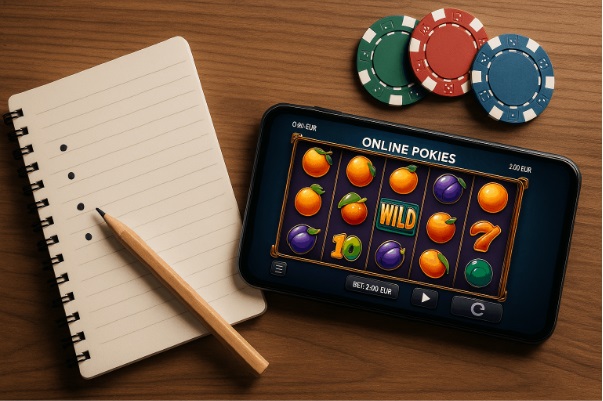Online pokies might seem like a bit of light-hearted fun—and they absolutely can be—but if you’re diving in blind, you’re more likely to drain your balance than walk away with a grin. These digital machines are designed to entertain, sure, but they’re also sneaky little buggers if you don’t take a moment to understand how they tick.
Picking the Right Pokie for Your Style
Not every pokie is built the same. Some flash their features like a peacock on payday, while others quietly churn out steady, small wins. Your best move? Match the game to your playstyle. If you’re here for the long haul, low volatility pokies are your friend. Looking for a thrill? High volatility might suit you better—just be ready for the dry spells.
Spend a few minutes looking at Return to Player (RTP) percentages, themes, and game mechanics. The more info you have upfront, the fewer regrets you’ll have later.
Spin Smart: Budget First, Then Bet
This is the bit that trips up most folks. They jump in with twenty bucks, no plan, and expect a jackpot in five spins. That’s not how pokies work, mate. Having a clear strategy doesn’t suck the fun out—it gives you more chances to enjoy the ride.
Before diving in, here’s a short list of essentials that smart players tick off first:
- Set a firm spending limit for your session.
- Choose pokies with features you actually enjoy (not just the trending ones).
- Start with smaller bets to test the waters before ramping up.
- Step away if it stops being fun—that’s your cue.
These aren’t just safety nets; they’re how you stretch your fun and dodge the stress. Even the pros know when to call it a night.
The Myth of “Feeling a Win Coming”
Let’s clear the air: pokies don’t remember. Every spin is random, driven by a Random Number Generator (RNG) that doesn’t care about your hunch or how long it’s been since your last win. You could spin a hundred times without a bonus and still be no closer to a payout.
Thinking a win is “due” is like believing a coin owes you heads after five tails. It’s not how probability works, and it’s a fast track to blowing your cash. Stay grounded. Play for the moment, not some imaginary pattern.
Betting Amounts: Striking the Right Balance
One common dilemma players face is figuring out how much to bet. Go too small and you might never see a feature. Bet big and you might be out before the pokies even warm up.
Take a look at this simple breakdown of playing styles and their ideal betting approach:
| Player Type | Suggested Bet Size | Game Volatility | Expected Session Time |
| Low-Risk Casual | $0.10 – $0.50 | Low | Long |
| Mid-Risk Explorer | $1 – $2 | Medium to High | Moderate |
| High-Roller Hustler | $2.50+ | High | Short |
Adjusting your strategy based on how much time (and money) you’re willing to spend is half the battle. Being flexible helps you keep control—and that’s what separates mindful play from reckless punting.
Free Mode Has Its Place—But Don’t Get Fooled
Demo play is often overlooked, but it’s the perfect space to suss out a game’s layout, test features, and decide if it’s your cup of tea. No pressure, no cost—just pure exploration.
Why You Should Use Demo Mode (But With Caution)
Free play gives you a chance to try different bet sizes, explore bonus features, and understand how paylines work. It’s also great for comparing pokies before you decide where to put your money.
Just remember—demo spins aren’t always a mirror of the real deal. Sometimes the game is a little too generous in free mode to keep you hooked. That’s not paranoia—it’s just smart observation. Always take those demo wins with a grain of salt.
Final Thoughts: A Little Savvy Goes a Long Way
There’s no secret formula for cracking online pokies. If there were, casinos would be out of business by now. But you don’t need a magic system—just a cool head and a few good habits.
Read up before you dive in. Bet within your means. Know when the machine’s just not vibing with you. And above all, play because you enjoy it—not because you’re chasing something.
Pokies should be a bit of harmless fun. Keep it that way by treating them with respect, not superstition. Your wallet—and your mood—will thank you for it.
